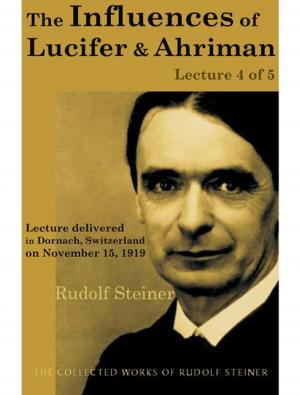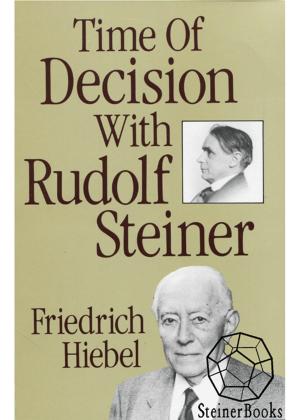| Author: | Georg Kühlewind; Michael Lipson Ph.D. | ISBN: | 9781584204596 |
| Publisher: | SteinerBooks | Publication: | March 1, 2011 |
| Imprint: | Lindisfarne Books | Language: | English |
| Author: | Georg Kühlewind; Michael Lipson Ph.D. |
| ISBN: | 9781584204596 |
| Publisher: | SteinerBooks |
| Publication: | March 1, 2011 |
| Imprint: | Lindisfarne Books |
| Language: | English |
Every spiritual practice, every exercise of consciousness, all meditation-indeed, every moment of true awareness-we do with the "gentle will," even if we are unaware of it initially and cannot fully activate it yet. In the course of practice, however, the gentle will begins to shine, and we gradually gain the ability to access it in our ordinary, daily activities, allowing our lives to become infinitely richer, meaningful, and creative.The gentle will is relaxed, receptive, expressive, creative, soft, light, and playful. It is not rigid or cramped. We use the gentle will in artistic activities such as playing a musical instrument, writing a poem, or painting a picture. It is the original will of the human being, the will of the "I." The gentle will is not the determined, useful, goal-oriented, egoistic, working will of Sisyphus, who will never be able to roll his boulder up the mountain. The gentle will is free of me-feeling and egoism. In this way, it differs from the "hard will," which works through egoism.Today, however, all life is governed by the principle of usefulness, utility, comfort, and efficiency-the hard will of egoism. This approach has brought the world to the brink of catastrophe, regardless of what technocrats say or think about it.Georg Kühlewind writes in this book that the only hope he sees of avoiding destruction is a change in human consciousness; the "hard will" must become the "gentle will." To this end, he provides exercises through which we may transform the hard will into the gentle will.
Every spiritual practice, every exercise of consciousness, all meditation-indeed, every moment of true awareness-we do with the "gentle will," even if we are unaware of it initially and cannot fully activate it yet. In the course of practice, however, the gentle will begins to shine, and we gradually gain the ability to access it in our ordinary, daily activities, allowing our lives to become infinitely richer, meaningful, and creative.The gentle will is relaxed, receptive, expressive, creative, soft, light, and playful. It is not rigid or cramped. We use the gentle will in artistic activities such as playing a musical instrument, writing a poem, or painting a picture. It is the original will of the human being, the will of the "I." The gentle will is not the determined, useful, goal-oriented, egoistic, working will of Sisyphus, who will never be able to roll his boulder up the mountain. The gentle will is free of me-feeling and egoism. In this way, it differs from the "hard will," which works through egoism.Today, however, all life is governed by the principle of usefulness, utility, comfort, and efficiency-the hard will of egoism. This approach has brought the world to the brink of catastrophe, regardless of what technocrats say or think about it.Georg Kühlewind writes in this book that the only hope he sees of avoiding destruction is a change in human consciousness; the "hard will" must become the "gentle will." To this end, he provides exercises through which we may transform the hard will into the gentle will.















